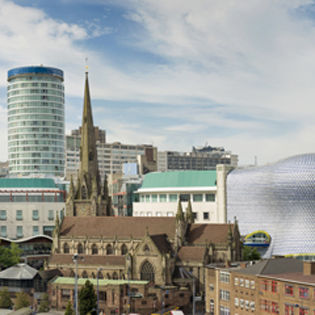Making the Brazilian Northeast: A Region within the Nation and the World (1924-1968)
- Location
- Muirhead Tower - Room 122
- Dates
- Wednesday 5 October 2016 (16:00-18:00)

Speaker: Dr Courtney J Campbell (Birmingham)
Part of the Modern and Contemporary History Seminar Series Autumn 2016.
ALL are welcome and there are always drinks afterwards in Bratby Bar, Staff House.
Please contact the organiser if you’d like to join the speaker for dinner afterwards.
Abstract
In a so-called globalizing world, how have sub-national regions gained a specific sense of place and fixed cultural identity? In this seminar, I will present how the Brazilian Northeast morphed from a meteorological designation (defined by a lack of rainfall) into a cultural and social identity through an examination of international events.
The seminar focuses on how Brazilians discussed the meaning of belonging to the Northeastern region from the 1920s through 1968 and how this historically specific cultural identity was both influenced by and influenced the region’s relations with the world around it.
I analyze a variety of sources from both state and non-state actors to explore how ideas about the region and its meaning circulated among social groups and across international lines. To do so, I will present international events in which the region’s inhabitants engaged with the world around them, including a World Cup soccer match, beauty pageants, and even international aid agreements.
Within these international events, race was often mobilized as a defining characteristic. Yet, how Brazilians talked about race and region through these events depended on the geographic scale of the discussion.
Specific sub-regions of the Northeast developed uniquely Afro-Brazilian or indigenous identities, narrating their culture through particular historical events and symbolic folklore. At the national level, the region came to represent a mixed-race population whose culture curated an authentic Brazilian past, in this way adding value to the region, while also allegedly holding it back from economic progress.
It was when the conversation trespassed into the international scale that anxieties about the region’s potential for representing national inferiority were expressed and it was this level of conversation that set the limits of the definitions of the Brazilian Northeast.